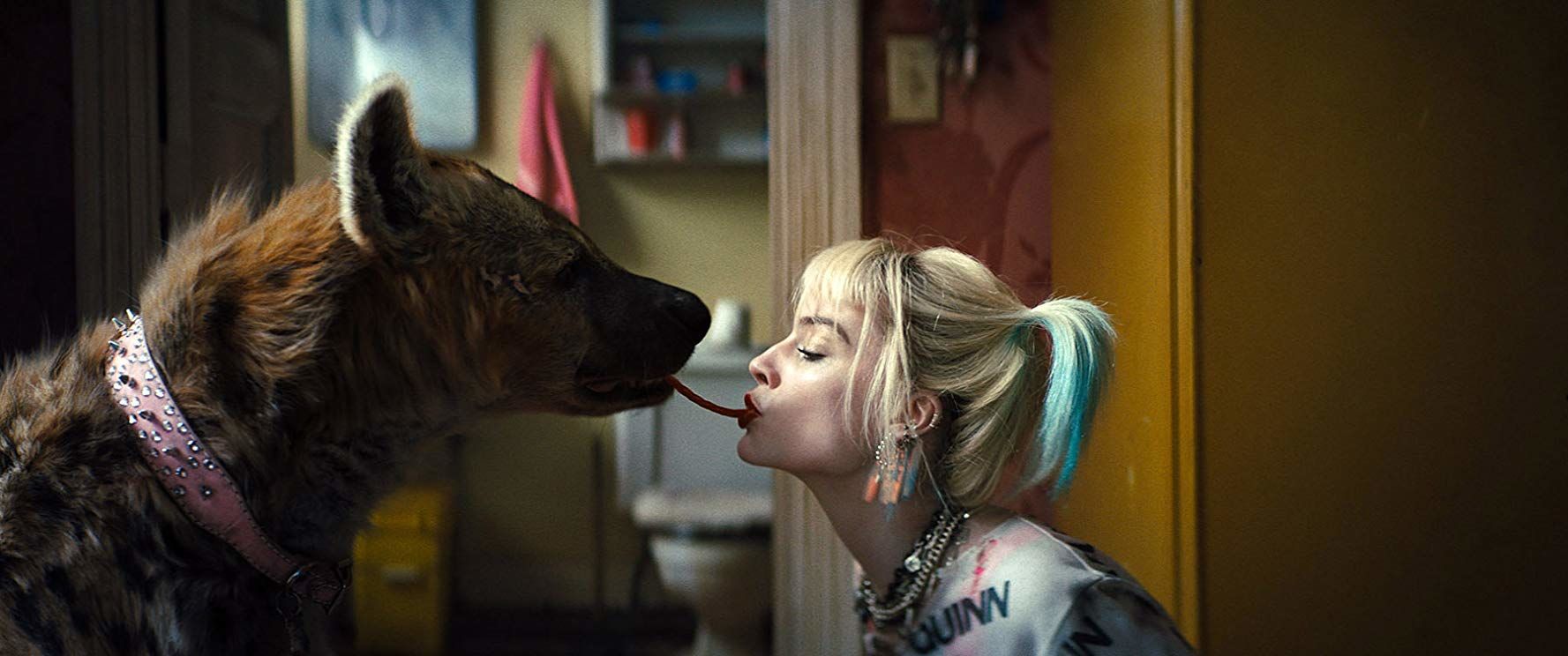Create a free profile to get unlimited access to exclusive videos, sweepstakes, and more!
Birds of Prey writer Christina Hodson wants the fantabulous emancipation of female action-movie writers

In theaters this weekend, Birds of Prey (and the Fantabulous Emancipation of One Harley Quinn) is the second major tentpole feature from screenwriter Christina Hodson. (She's also attached to Batgirl and The Flash.) Her produced filmography starts with a pair of female-led thrillers, Unforgettable and Shut In, followed in short order by the Transformers spin-off Bumblebee. Yes, Hodson is one of the people you can thank for there actually being a good Transformers movie. Now, she's doing another solid for the film industry, if in a more behind-the-scenes way, through her Lucky Exports Pitch Program.
Introduced last November, Lucky Exports is a collaborative initiative between Hodson's company, Hodson Exports, and Birds of Prey star Margot Robbie's production outfit LuckyChap Entertainment. The six chosen writers, all female-identifying, participated in a four-week writers' room that resulted in half a dozen pitches ready to be sold. Those pitches, explains Hodson, will be "taken out" soon, hopefully landing all of them with deals that will eventually see them on the big screen.
One future film is a bit of a rom-com. Another's more horror. Sci-fi is, of course, represented. One thing they have in common, though: They're action, written by female writers who, in Hodson's words, "have the capacity to take on these big studio movies."
The seed of Lucky Exports was planted a few years ago when the growing Time's Up movement got Hodson interested in the subject of representation within the film industry. She was inspired by the research of Dr. Stacy Smith, founder and director of USC's Annenberg Inclusion Initiative, into on-screen representation (or the lack thereof). Hodson then took things to her own backyard: screenwriting.
"I looked at the WGA report, and the numbers within the feature writing space are really, really bad," she recalls. "In the last WGA report, men outnumbered women among working feature writers about three to one. Of approximately 1,600 working feature writers, there are only 114 people of color of either gender. That number was so staggering to me. I was like, 'There's gotta be something we can do about it.'" She went to Robbie, whose LuckyChap shares a similar philosophy regarding gender equality within the film industry. "As soon as I pitched it to them, they were on board. I hired a very wonderful executive named Morgan Howell, who runs my production company with me. She really put this on her back. And together we read a bunch of writers. We selected six really wonderful candidates, all of whom have not yet been working in the feature space but all want to."
Lucky Exports' focus on action filmmaking came, Hodson recalls, from her own experience. She routinely is on panels and attends film festivals, and "one of the things I always get asked by female writers is, 'How do I get into the big action space? It feels so much harder.' And it often is harder, and there's a lot of mystery surrounding that." There's a perception, Hodson argues, that "action movies are for men and therefore should be written by men. And, historically, we've had male leads in action movies for so long. It's become a bit of a boy's club, very unnecessarily."
Women have always loved action movies. (Some of Hodson's favorites: Die Hard, Terminator 2: Judgment Day, Aliens, and Wonder Woman, though she laughingly wonders if citing that last film "sounds like a cheat, because it's a DC movie.") And women, of course, go to the movies — more than men do in certain key demographics, as studies have shown. But the diversity found in movie theater seats isn't echoed in Hollywood's halls of power.
With Lucky Exports, Hodson hopes, in some small way, to change that. As the writer of three scripts that appeared on the Black List — an annual list of the best un-produced scripts — early in her screenwriting career, Hodson knows the importance of getting your name out there. The right person reading the right script can lead, not just to a writer's script being produced, but to that writer's name being part of the conversation when it comes time to hire for the next big movie.
"The goal of the program was to fill the pipeline with the next new batch of voices who want to take these jobs, who want to step up and write the big tentpole movies. Who have a real passion for big action movies," Hodson explains. "We have to get women the experience of writing at this level, writing these kinds of movies. There are plenty of them who want to do it. So, hopefully, we're going to have six new women at the top of every studio list!"


























